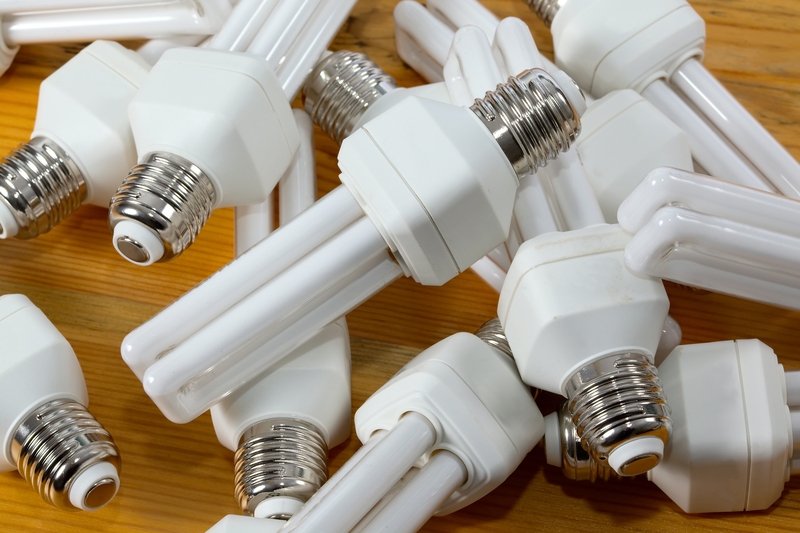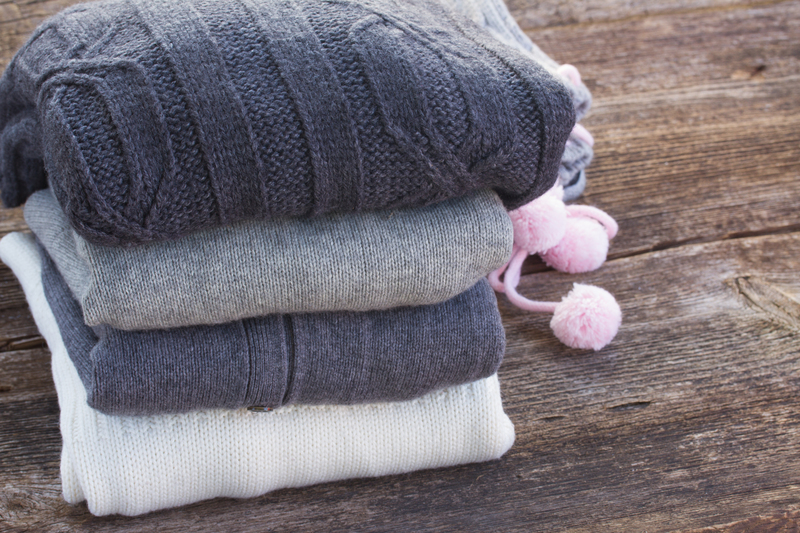Serenity Through Simplicity: Exploring Decluttering and Minimalist Living
In a world overwhelmed by consumerism, distractions, and constant connectivity, many people long for tranquility, focus, and a deeper sense of contentment. For countless individuals, serenity through simplicity is not merely a trend but a transformative lifestyle choice. Decluttering and minimalist living have emerged as powerful avenues to achieve calm, clarity, and well-being. In this in-depth guide, we'll explore how you can harness the benefits of these philosophies, incorporating practical tips, mindset shifts, and the science behind a simpler, more intentional life.
Understanding Minimalism: More Than Just Less
Minimalism often conjures images of empty rooms and stark walls, but in truth, this lifestyle is about much more than owning less. At its core, minimalism is a conscious decision to eliminate the unnecessary to make room for what truly matters. It is the pursuit of intentionality in every area of life: possessions, commitments, thoughts, and habits.
- Living with Less: Decluttering your physical space clears your mind and reduces distractions.
- Intentional Choices: Minimalism encourages thoughtful decisions--investing in quality over quantity.
- Freedom from Consumerism: Breaking free from society's pressure to constantly acquire more leads to lasting fulfillment.
Incorporating minimalist living can look different for everyone. For some, it may involve a dramatic downsize; for others, a subtle but decisive shift away from excess.

Why Decluttering Matters for Peace and Productivity
The Science Behind Clutter and Stress
Studies have shown that a cluttered environment can significantly affect our mental well-being. Physical clutter competes for our attention, increases stress, and can make it harder to relax. The act of decluttering isn't just about creating order; it's about reclaiming your mental energy and emotional space.
- Decreased Anxiety: Tidier environments lower cortisol levels and reduce feelings of overwhelm.
- Increased Focus: Less clutter means fewer distractions, fostering productivity and creativity.
- Improved Mood: Clear spaces are linked with positive emotions and higher life satisfaction.
Embracing minimalist living by decluttering can help you attain serenity through simplicity, transforming your home into a personal sanctuary.
Decluttering Strategies for a Simpler, More Serene Life
1. The KonMari Method
Popularized by Marie Kondo, this approach focuses on keeping only items that spark joy. By handling each item and asking yourself if it inspires happiness, you create a space filled with positivity and purpose.
2. The Four-Box Technique
Label four boxes as Keep, Donate, Trash, and Relocate. Work through your home systematically, placing each item into the appropriate box. This simple, structured approach makes decisions easier and less overwhelming.
3. 90/90 Rule
If you haven't used an item in the last 90 days and don't plan to use it in the next 90 days, it's probably time to let it go. This rule helps cut down on items that serve little practical value.
4. Daily & Weekly Mini-Declutters
Set aside 10-15 minutes a day or an hour per week to tackle a specific area. Over time, these mini-sessions add up to create significant, lasting change.
- Start Small--Choose one drawer or shelf to begin.
- Work Room by Room--Focus your energy for maximum impact.
- Stay Consistent--Make decluttering a habit, not a one-time event.
Minimalist Living: Transforming Every Area of Life
1. Minimalism in the Home
Adopting minimalist home design isn't just about aesthetics; it's about fostering a tranquil, functional environment. Choose multipurpose furniture, maintain open spaces, and invest in items you truly love or need.
- Neutral Colors: Promote calm and clarity.
- Functional Decor: Select pieces that serve a purpose.
- Quality over Quantity: Invest in fewer, better-made items that endure.
2. Digital Minimalism
Clutter isn't only physical. Digital minimalist living involves curating your online life to reduce overwhelm--unsubscribing from emails, limiting screen time, and organizing files.
- Delete Unused Apps and programs regularly.
- Organize Files into folders for easy access.
- Set Boundaries for social media and device use.
3. Minimalist Finances
Financial decluttering means evaluating spending habits, eliminating unnecessary expenses, and focusing on intentional consumption.
- Track Expenses: Use a budgeting app or journal to monitor where your money goes.
- Automate Savings: Make saving a priority, not an afterthought.
- Invest in Experiences, Not Things: Studies show experiences create longer-lasting happiness.
4. Minimalism in the Calendar
Busyness doesn't equal productivity. A minimalist approach to scheduling involves prioritizing essential commitments and learning to say no gracefully.
- Evaluate Commitments: Remove activities that drain your time and energy.
- Schedule Downtime: Block time for relaxation and self-care.
- Be Present: Focus on one task or event at a time for deeper engagement.
The Mindset Shift: Embracing "Enough"
One of the most liberating aspects of simplicity is the realization that enough is a decision, not a destination. In a society that constantly pushes us to want more and do more, intentionally choosing contentment is a radical act. Minimalist living is about appreciating what you have, letting go of comparison, and finding joy in sufficiency.
- Practice Gratitude: Regularly reflect on what is going well in your life.
- Limit Media Consumption: Advertising and social media can drive unnecessary desires.
- Focus on Values: Align your time, energy, and resources with what genuinely matters to you.
This shift from wanting more to valuing enough is what allows for true serenity through simplicity.
Benefits of a Decluttered, Minimalist Lifestyle
Why are so many people drawn to minimalist living? The advantages are both tangible and deeply personal. Let's look at what you can expect to gain:
- More Time -- Less cleaning, organizing, and maintaining.
- More Money -- Spending less on "stuff" and more on what brings value.
- Less Stress -- Simpler spaces and schedules foster peace of mind.
- Increased Clarity -- With fewer distractions, goals and values become clearer.
- Greater Freedom -- Fewer possessions and obligations translate to more flexibility and choice.
Ultimately, serenity through simplicity is about living by design, not default.
Common Challenges and How to Overcome Them
Letting Go of Sentimental Items
It's natural to find it hard to part with keepsakes. To simplify this process, set aside a box for your most cherished items and limit their number. Consider taking photos to preserve memories without adding physical clutter.
Fear of "Needing It Someday"
This fear can make it difficult to declutter. Remember, confidence in your resourcefulness is key; most items are easily replaceable if truly needed. Donate or sell items you haven't used in over a year.
Family and Roommate Resistance
If your cohabitants aren't on board, start by decluttering your own space. Lead by example, and communicate the benefits of minimalist living for collective serenity.
Practical Steps to Achieve Serenity Through Simplicity
- Define Your Vision: What does a serene, simple life look like for you?
- Set Clear Goals: Decide what areas to tackle first--home, finances, time, or digital overload.
- Take Small Actions: Remember, progress is more important than perfection.
- Celebrate Wins: Notice and acknowledge the difference simplicity brings to your daily experience.
- Adjust as Needed: Minimalism is a personal journey; tweak your approach as you go.
Minimalist Living: A Lifelong Journey
Embracing decluttering and minimalist living is an ongoing process, not a one-off project. Your needs and values will evolve, requiring periodic reassessment. The path to serenity through simplicity is as much about the journey as the destination.
- Regular Maintenance: Schedule seasonal or annual check-ins to clear out physical and mental clutter.
- Mindful Mindset: Stay aware of what you let into your life, from possessions to commitments.
- Share and Inspire: Encourage others by sharing your story and the peace you've discovered.

Resources for Further Exploration
Ready to go deeper? Explore these books, websites, and podcasts for more inspiration on decluttering and serenity through simple living:
- Books: "The Life-Changing Magic of Tidying Up" by Marie Kondo; "Essentialism" by Greg McKeown; "The Minimalist Home" by Joshua Becker.
- Podcasts: The Minimalists Podcast; Slow Home Podcast; Optimal Living Daily.
- Websites: Becoming Minimalist; The Minimalists.
Conclusion: Finding Calm in a Complex World
Serenity through simplicity is within reach for anyone willing to investigate what truly matters and shed the rest. By decluttering your home, your calendar, your finances, and your mind, you create the spaciousness necessary for peace, creativity, and connection. Minimalist living is not about deprivation; it's about making room for what brings you meaning and joy.
Start small, stay consistent, and let the gentle power of simplicity guide you to a life of greater serenity and satisfaction.